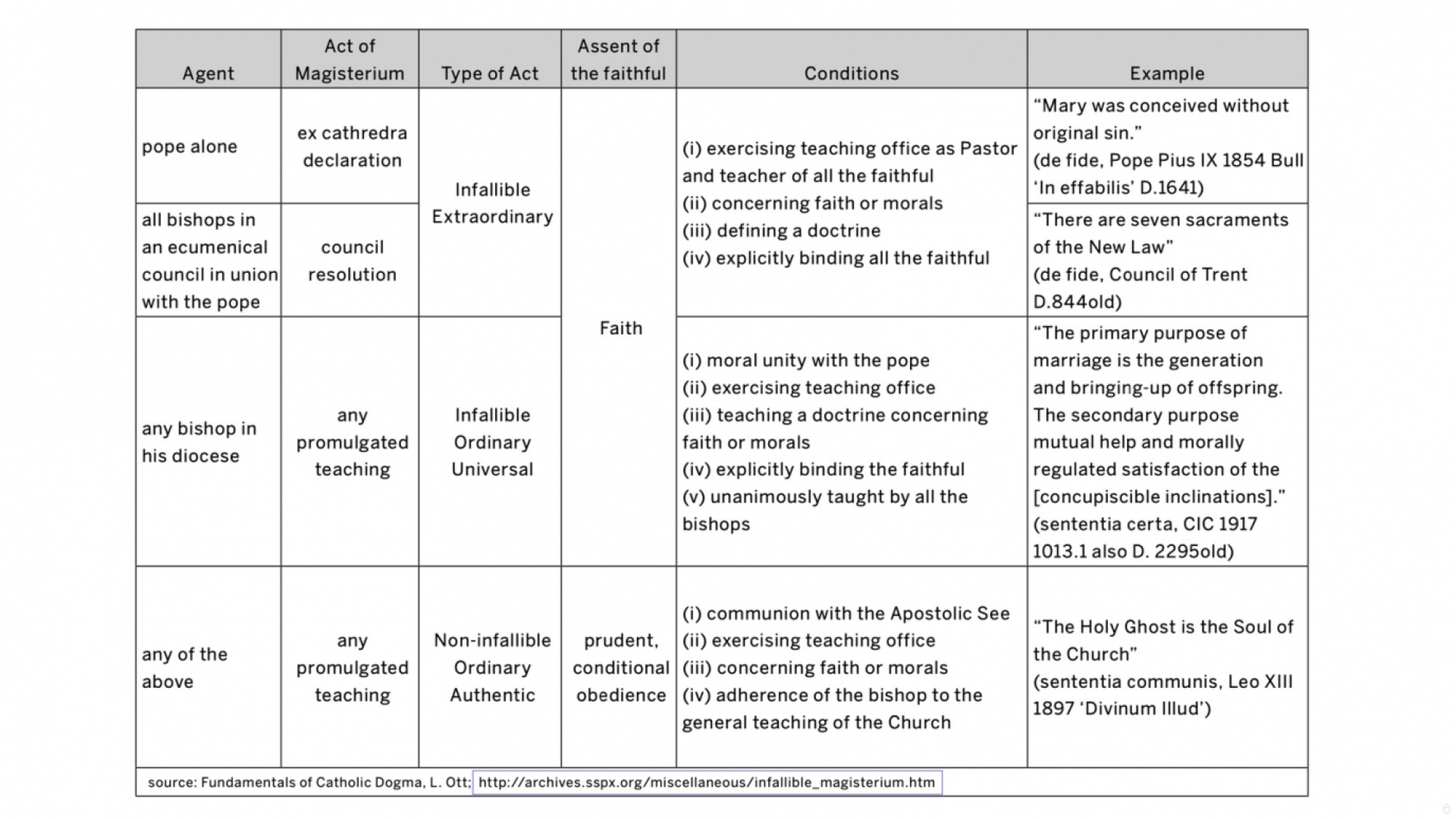Truth endangered by magisterium?
Rev. Robert Brucciani
The question
For the last 45 years, the Society of St. Pius X has maintained that the documents of Second Vatican Council and many of the subsequent official teaching documents of the Church (usually called the "magisterium of the Church") have contained errors. Does this mean that the magisterium of the Church has endangered true doctrine?
To answer this question correctly, we need to understand the terms used.
Meaning of magisterium
The "magisterium" of the Church, in the strict sense, is the Church's teaching office. When the Church exercises this teaching office, she produces Acts of the Magisterium which are propositions presented within instruments such as encyclicals, motu proprios, apostolic letters etc. which are confusingly called "magisterium" too. Here we make the distinction between magisterium (teaching office), Acts of the Magisterium and the instruments of teaching.

An answer
We know by faith that the Church is infallible when she makes final decisions concerning faith and morals (see table above for the conditions of infallibility). The magisterium (teaching office) thus exercised can never endanger truth.
In the exercise of their ordinary teaching office, the pope and the bishops teach infallibly under certain conditions too (again, refer to the table). The magisterium (teaching office) thus exercised can never endanger truth.
In the exercise of their ordinary teaching office, the pope and the bishops can also teach non-infallibly and, when certain conditions are met, the faithful are bound by a prudent and conditional obedience to give assent to this teaching. They believe the teaching out of respect for the authority who teaches, but the teaching could actually turn out to be wrong (eg. certain teachings in the thirteenth century against the Immaculate Conception)… but not for want of trying to find the truth. Exercised in this way, the magisterium (teaching office) can never ultimately endanger the truth.
But what of the conciliar and post-conciliar teachings which contradict infallible Ordinary Universal Acts of the Magisterium prior to the Council? Are these to be counted as the products of the magisterium (teaching office) of the Church?
The answer to this last question is debated, but it would seem that despite the teachings emanating from those who usually exercise the magisterium (teaching office) of the Church, the teachers do not satisfy all the conditions for their teachings to be counted even as non-infallible Ordinary Authentic Acts of the Magisterium the missing condition being that the teachers do not adhere to the general teachings of the Church. The Second Vatican Council effectively introduced a new teaching, a new theology which is at odds with the general teachings of the Church across almost 20 centuries. Those who promote this new theology do not adhere to the general teachings of the Church.
An analogy
When a pope teaches error using the material instruments of the teaching office of the Church (encyclicals, motu proprios, exhortations etc.), he is a like a CEO who misuses his company credit card to entertain his friends. The expenditure is on the company books, but it is not company business.
May the Divine Auditor come to our aid.
View all articles from Ite Missa Est